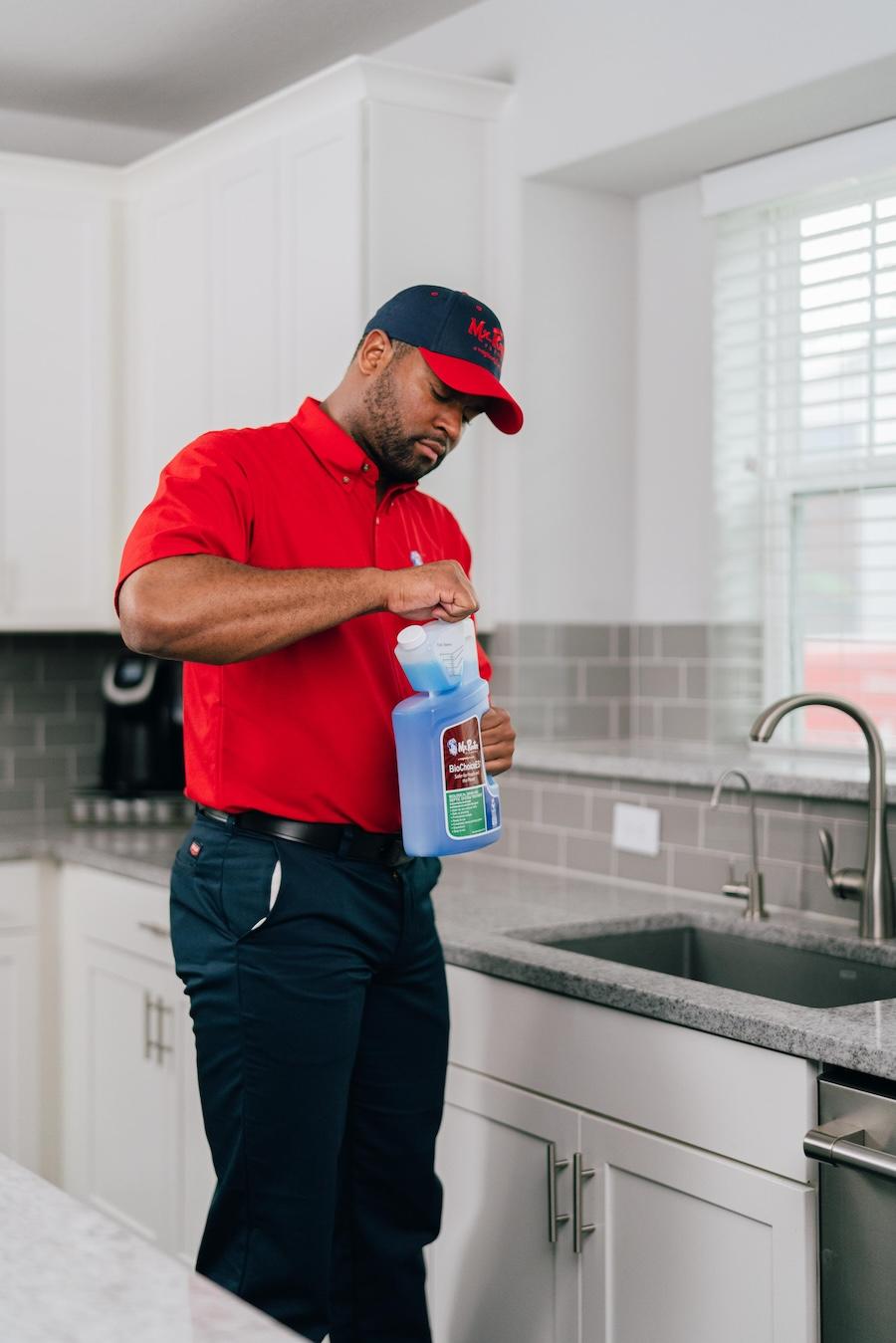Schedule a Plumber This Sunday to Get 50$ OFF
Schedule a Plumber This Sunday to Get 50$ OFF

If you've ever faced a clogged sink or a backed-up shower drain, you know how frustrating it can be. But have you ever wondered how those handy drain cleaners work? Mr. Rooter Plumbing dives into the science and mechanics behind drain cleaners and how they prevent clogged drain line repair.
A drain cleaner is a chemical product designed to help clear blockages in your pipes. These products come in liquid, gel, or powder forms and are available in stores for home use. They are handy for minor clogs but remember, it's always best to call a plumber or a professional plumbing repair service for more serious issues.
There are three main types of drain cleaners: chemical, enzymatic, and mechanical.
When you pour a chemical cleaner into a clogged drain, the chemicals react with the clog. The reaction generates heat, which helps to dissolve the blockage. Here's a simple breakdown of what happens:
While chemical drain cleaners can be very effective, they can also be dangerous if misused. Here are some safety tips:
Enzymatic drain cleaners use natural enzymes and bacteria to break down the clog. These microorganisms eat away at the organic material, slowly digesting it until the drain clears. Here’s how it works:
While drain cleaners can be very effective for minor clogs, there are times when you need to call in a professional plumbing service. Here are some signs that it’s time to get help:
Understanding how drain cleaners work can help you make better decisions when dealing with clogs. While chemical and enzymatic cleaners can be effective for minor blockages, it's essential to know when to call a plumber for professional drain cleaning or clogged drain line repair. By keeping your plumbing system in good condition and knowing when to seek help from Mr. Rooter Plumbing, you can avoid many common household plumbing problems.
A peaceful home is built on small comforts—soft lighting, cozy spaces, and plumbing that works quietly in the background. When a faucet starts dripping, squealing, or banging, it quickly becomes…
A clogged drain may seem like a minor annoyance at first, but ignoring it can lead to much bigger issues inside your home. Water that drains slowly is often a…
You expect clean and clear water when you open your home’s faucets and shower heads. When it’s not, you know that you have a hidden water line problem on your…